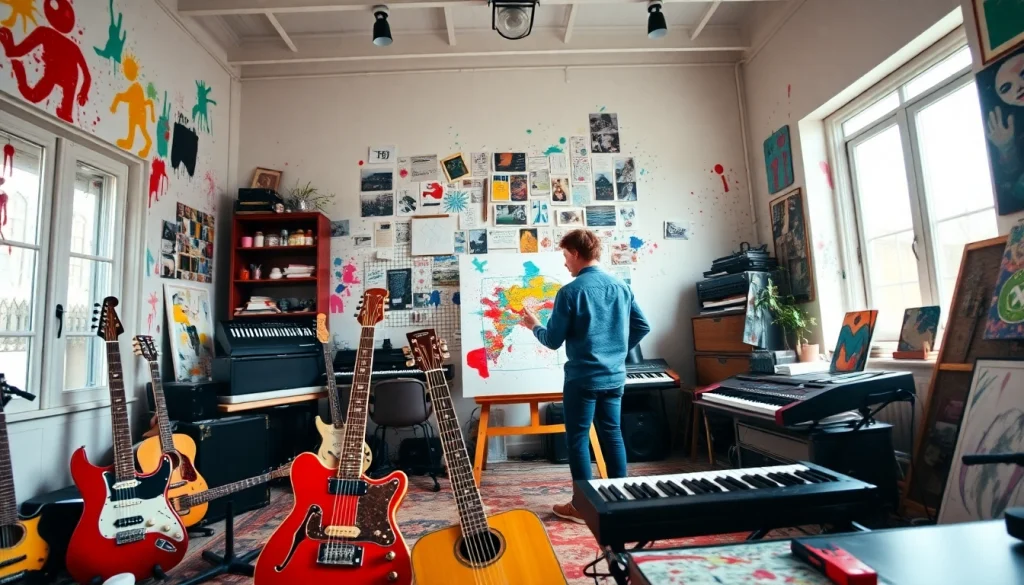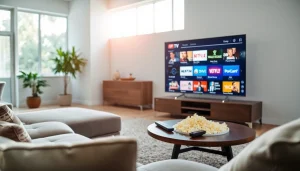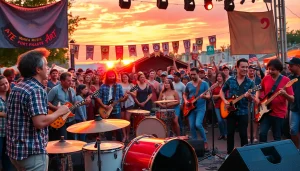Understanding the Independent Artist Landscape
The music industry has undergone a radical transformation in recent years, particularly with the rise of technology and digital distribution. Aspiring musicians can now carve out their own paths without the backing of major record labels, leading to a thriving community of Independent Artists. This article will delve into the various facets of being an independent artist, from branding and marketing to music creation and distribution, effective networking, and measuring success.
Defining Independent Artists
Independent artists, or indies, are musicians who manage their careers autonomously, usually without the backing of a major record label. They often retain control over their music production, marketing, and distribution, allowing them the creative freedom to express their unique sounds and visions. The independence comes with challenges, but it also unlocks numerous opportunities for those willing to embrace it.
Key Characteristics of Independent Artists
Independent artists share common traits that set them apart from their signed counterparts. These may include:
- Creativity: They often experiment with different genres and styles without the constraints typically imposed by record labels.
- Self-reliance: Many indie musicians take charge of their music production, marketing efforts, and financial management.
- Community Engagement: They prioritize building relationships with their audience, often fostering loyal fanbases through direct interaction.
- Business Savvy: Understanding the business side of music is crucial, and independent artists typically educate themselves on various aspects such as contracts and royalties.
Why Choose Independence in Music
There are several compelling reasons to pursue a path as an independent artist:
- Control: Independent artists have complete control over their music, aesthetics, and branding, allowing for an authentic representation of their artistic vision.
- Revenue Potential: Without a label taking a significant cut, independent artists may retain a larger share of their earnings.
- Creative Freedom: There are no restrictions on genre, themes, or content, enabling artists to explore diverse musical avenues.
- Direct Fan Connection: Many independent artists prioritize building relationships with their fans, fostering loyalty and understanding of their audience’s preferences.
Building Your Brand as an Independent Artist
Crafting a Unique Brand Identity
Your brand identity is essential in setting you apart in a crowded marketplace. It encompasses more than just your music; it includes your visual style, messaging, and connection with your audience. Start by defining your core values, musical influences, and artistic goals. Create a mission statement that resonates with your target audience and articulates your brand vision.
Effective Marketing Strategies for Independent Artists
Marketing is crucial for the visibility and success of an independent artist. Here are some strategies to consider:
- Content Marketing: Consistently create and share engaging content that showcases your music and personality. This could include videos, blog posts, or behind-the-scenes looks at your creative process.
- Email Marketing: Build a mailing list to keep fans updated on new releases, tours, and personal insights. This direct line of communication fosters a sense of community.
- Collaborations: Partnering with other artists can expand your audience and introduce your music to new fans.
- Paid Advertising: While organic reach is important, consider using targeted social media ads to reach specific demographics that align with your music style.
Utilizing Social Media to Engage Fans
Social media platforms provide a powerful means of connection and engagement with fans. Choose platforms that best suit your audience and focus on maintaining an active presence. Here are some tips for effective social engagement:
- Authenticity: Share genuine experiences, successes, and even failures with your audience to foster a human connection.
- Content Variety: Use a mix of posts, including videos, stories, and live sessions to keep your content fresh and engaging.
- Interaction: Respond to comments, messages, and fan content to build a loyal community around your music.
Creating and Distributing Your Music
Choosing the Right Recording Tools
The right recording tools can significantly impact the quality of your music. Start with the basics that fit your budget and gradually enhance your setups as your needs grow. Consider investing in:
- Digital Audio Workstation (DAW): Platforms such as Ableton Live, Logic Pro, and FL Studio allow for recording, editing, and mixing your music.
- Quality Microphone: A good microphone can elevate your vocal recordings and instrument captures.
- Acoustic Treatment: Soundproofing your recording space can dramatically improve your sound quality.
Distribution Platforms for Independent Artists
Getting your music in front of listeners is essential. Many distribution platforms cater specifically to independent artists. Here are some popular choices:
- DistroKid: Offers fast and affordable distribution services, allowing you to upload your music to various streaming platforms.
- Bandcamp: A favorite for indie artists, it provides an easy interface to sell music directly to fans, giving you control over pricing and merchandise.
- Spotify for Artists: Offers insightful analytics and allows you to submit your music for playlist consideration, amplifying your reach.
Understanding Royalties and Copyrights
Knowing how royalties work is essential for independent artists to ensure they get paid for their work. Here are some key points to consider:
- Performance Royalties: Earnings generated from the public performance of your music. Register with a Performance Rights Organization (PRO) like ASCAP or BMI to collect.
- Mechanical Royalties: These royalties come from the reproduction of your music, such as physical copies or digital downloads.
- Copyright Registration: Protect your work by registering it with the U.S. Copyright Office, giving you legal rights over its use and distribution.
Effective Networking for Independent Artists
Connecting with Other Musicians
Networking is a cornerstone of success in the music industry. Building relationships with fellow musicians can provide opportunities and collaboration potential.
Attend local gigs, open mics, and festivals to meet artists within your genre. Online platforms like SoundCloud and Bandcamp also facilitate connections with other musicians.
Utilizing Music Industry Events
Music industry events such as conferences, workshops, and festivals are invaluable for networking. They allow independent artists to:
- Gain industry insights from professionals.
- Participate in discussions and panels.
- Network with potential collaborators and influencers.
Building Relationships with Music Bloggers and Influencers
Establish connections with established music bloggers and social media influencers in your genre. They can give your music exposure through reviews, interviews, and social media shares. A strategic approach includes:
- Researching relevant blogs and influencers within your genre.
- Reaching out with personalized messages that demonstrate knowledge of their work.
- Offering exclusive content or early releases in exchange for coverage.
Measuring Success as an Independent Artist
Key Performance Indicators (KPIs) to Track
Success as an independent artist can be measured through various KPIs, including:
- Streaming Numbers: Analytics from platforms like Spotify can offer insight into your listener growth.
- Social Media Metrics: Track your engagement rates, follower growth, and post reach to understand your audience better.
- Revenue Streams: Analyze income from sales, merchandise, and live performances to see where your financial potential lies.
Adapting Your Strategy Based on Feedback
Feedback is essential for growth. Encourage your fans to share their thoughts on your music and performances. This can be done through:
- Surveys and polls on social media.
- Direct messages and email feedback.
- Comments on new releases or live performances.
Use this feedback to refine your music style, marketing approach, and engagement tactics.
Continuous Growth and Learning as an Artist
The music industry is ever-evolving, and continuous learning is key to sustaining a successful career. This can involve:
- Attending workshops or online courses to upgrade your skills.
- Staying updated with music trends and industry changes.
- Listening to a diverse range of music to inspire your creativity.
Investing in your development—not just as a musician but as a brand and a business—will position you for long-term success.








